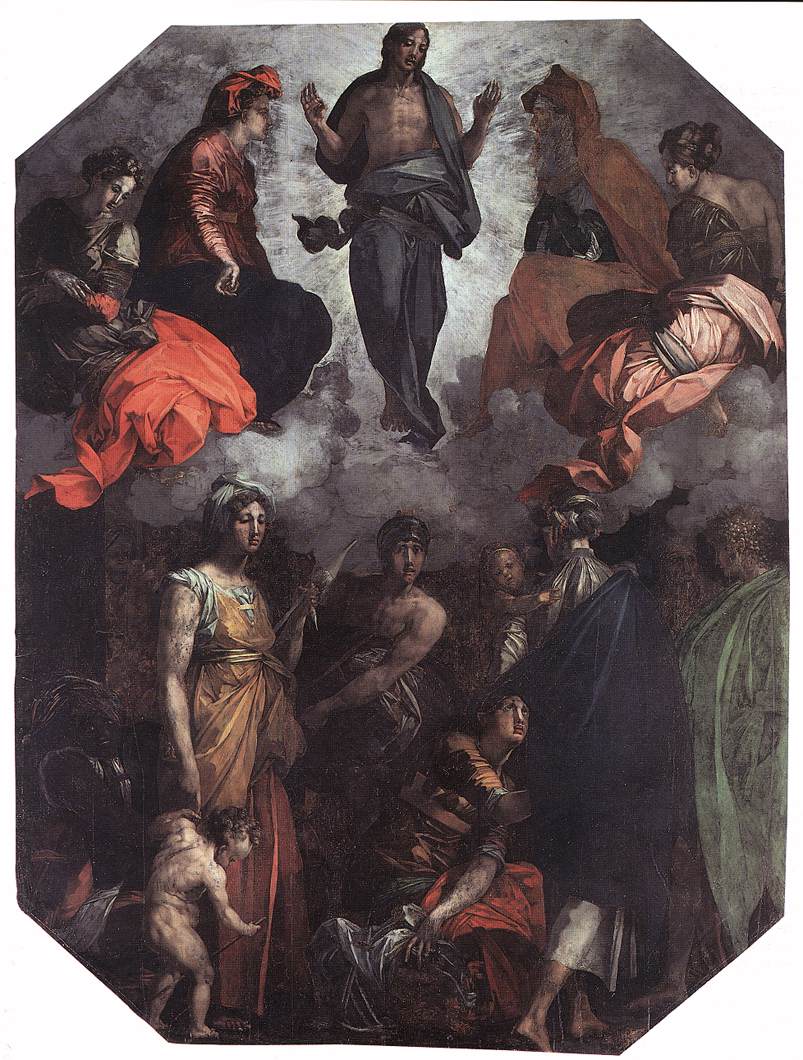« February 2016 | Main | April 2016 »
March 2016 Archives
March 2, 2016
Scotland keeps cracking down
I reported previously on Scotland's "named person" law, which assigns a non-parental busybody to monitor the well-being of every single child in Scotland until age eighteen.
Not only is that plan going forward, but schools and "named persons" in Scotland are going to start using questions and interrogations in the form of games to gather information about children's homes. That information will then be entered into a large database and used to evaluate children's well-being.
March 3, 2016
The wrong strike-down of Roe v. Wade
Wesley J. Smith has been warning for years about the very real possibility that Roe v. Wade will be struck down in a different sense from the sense pro-lifers talk about. What he means is that Roe, radical and evil though it was, left in place the possibility of some regulations on abortion facilities and the conditions under which abortion is carried out. Pro-aborts have chafed at these for years and have attempted repeatedly to get the abortion license of Roe expanded so that it is not even regulated as a surgical procedure would otherwise be when carried out in a free-standing clinic.
In the wake of Antonin Scalia's death, that looks like a very real possibility. Texas has been all too successful in regulating abortion. "Too many" abortion clinics are closing in Texas, and the pro-aborts are directly using that as an argument, per the Casey decision, that the medical regulations on abortion facilities are posing an "undue burden on women seeking an abortion."
March 12, 2016
No matter how bad you think it is
...It's worse.
From the United Kingdom comes this latest: Women carrying children with anencephaly and some unnamed other said-to-be-fatal birth defects who decide to abort their children will be "supported" to carry their babies to term so that the state can harvest the babies' organs when they die shortly after birth.
No, I'm not making that up. It's real. Read all about it here, here, and here.
We can only hope that they will be allowed to die naturally instead of just being killed directly by organ harvesting. Even that isn't entirely clear. For example, there's this:
[O]nce doctors had certified the infant dead, its vital organs would be removed.
Um, wait, we skipped the part where the baby actually, y'know, dies. Are they just going to declare them dead because because?
In some cases, where donation has been agreed, babies could be certified brain dead but their bodies kept alive by artificial ventilation. Surgeons could then remove organs from these so-called ‘heartbeat babies’ when they are fresh, maximising what can be used and the chance of successful transplant.
Wait, wait, perhaps you didn't know, Mr. Reporter, but a child with anencephaly is not ipso facto brain dead in the medico-legal sense. He has a working brain stem until he actually, y'know, dies. Naturally. What you wrote could be read as saying that these would just be declared to have suffered whole-brain death even if, er, they hadn't.
March 17, 2016
St. Patrick and the wealth of nations

Political economy is the integration of the wealth and assets across generations. The ground of all wealth is human enterprise — the application of intelligence and hard work to the natural resources of the planet. Wise stewardship preserves and expands the capital stock, which arises out of the God-given fruitfulness of mankind.
There were few greater geniuses of political economy than “the great company of Irish saints” of late antiquity, whose faithful stewardship of the resources available to them, in the dying anarchy of the Roman order, preserved against ruin and decay the human wealth of the ancient world. These men, among whose number we include the enigmatic and beloved saint celebrated today, give to a hackneyed modern phrase new life and vitality. They were the supreme wealth managers of our ancestry. What Whittaker Chambers wrote of St. Benedict, and of his great work in southern Europe, we may also say of the Irish saints of northern Europe:
“At the touch of [their] mild inspiration, the bones of a new order stirred and clothed themselves with life, drawing to itself much of what was best and most vigorous among the ruins of man and his work in the Dark Ages, and conserving and shaping its energy for that unparalleled outburst of mind and spirit in the Middle Ages.”
What these saints demonstrate for us today is the narrowness of our notions of wealth, prosperity, and economy. The academic discipline which takes for its title the latter word has all but forgotten the foundation of its subject-matter: the fruitfulness of human beings, as they pass their resources, material, intellectual, spiritual, from generation to generation.
The nine-thousand-year lease enjoyed by the Irish brewer whose product many of us will joyfully imbibe today (perhaps under official dispensation from Lenten fasts), suggests a sounder horizon for thinking about economic prosperity: not the next quarter’s evanescent earnings report, but the true wealth of nations, unto to the next age, and the age after that.
The Celtic Church, though it ultimately submitted to the authority of the Papacy, had its own character and integrity. It had never known the secular, and was largely isolated from the ecclesiastical power of Rome — a fact that became manifest when St. Columbanus came to France and quarreled with the worldly and often decadent Frankish hierarchy. We do not know precisely how these quarrels were settled, but we can reasonably guess that the settlements, which avoided what would have been a disastrous schism, were the fruit of the holiness of Columbanus and Gregory the Great, who then sat on the Chair of St. Peter.
There is a lot of contempt, in modern thought, and in modern unthinking prejudice, for the idea of monasticism. But what is often forgotten about monasticism is how powerful an engine of political economy it was in a world where political and economic stability had vanished. In monasticism Western man at last found a way to be productive again; and in monasticism we see the early beginnings of that power over material forces, that stewardship of the riches of creation, that made us — we men of the West — masters of the earth. That this power has perhaps been the single most calamitously abused thing in all of the bloody history of mankind does not diminish the astonishing humility and piety at its roots. And I might be forgiven for the occasional fancy that all our machines and computers and efficiency are but a slow decline from the awesome achievement that the Irish monks and their students all over Europe, along with their Benedictine brothers, made visible in the gardens of the great monasteries.
So on this day when we celebrate the man who drove all the snakes from Ireland, let us also recall his Irish brethren, who so filled the world with their own “mild inspiration,” and made us who we are.
March 19, 2016
Turning Against Trump
Don't get me wrong: I've been against Trump as a candidate since it became clear that he wasn't a conservative -- which is to say, from the beginning. That's not true of everyone, however.
The Weekly Standard's Johnathan V. Last wrote a newsletter recently about blogger Ace of Spades's move from "Trump curious" to anti-Trump. It's worth a read.
The first highlight is from Ace of Spades:
The other day a friend asked me why I was posting negative stuff on Trump. I told him, basically, that everyone has their threshold of embarrassment. I can mock the Upper Middle Class Respectable set for having what I think is a way-too-high sensitivity to embarrassment -- usually one strongly shaped by leftwing PC codes -- but everyone has their own level.It's embarrassing, to me, that at this late date Trump can only sputter about "getting rid of the lines" at a debate when asked about his health care plan.
It's embarrassing, to me personally, when I'm repeatedly confronted with the fact that Trump still seems to not know the contents of the Sessions Immigration Plan on his own website -- the whole reason I even began to be "Trump Curious," as I term it.
If a plan could be nominated for president, I'd vote for the Sessions Immigration Plan.
It's personally embarrassing to discover that Trump is nearly entirely unaware of the only reason I entertained supporting him.
March 22, 2016
"We can't imagine..."
A friend drew my attention to this article in The Atlantic, pushing for loosened criteria for organ donation. I mean, really loosened.
But I want to start by jumping to a would-be reassuring paragraph in the middle of the article. We'll find out what "such a model" means as we go along.
Some may argue that such a model could compromise doctors' care of critically ill patients....In practice, though, a donor's doctors have little connection to those involved with organ recovery, precisely so as to avoid any conflict of interest. We can't imagine a scenario in which doctors would give a patient inferior care so that her [sic] organs could be procured. (emphasis added)
They can't imagine! So let's look at their proposals.
March 27, 2016
Happy Easter! Alleluia Anyway!

It starts with math. No, really. Bear with me.
We all should know from high school math that anything finite divided by infinity is zero, and infinity divided by anything finite is infinity.*
But what is infinity divided by infinity?
As it turns out, it can be anything. Not any old thing -- it's not random. Each case is specific. I can still remember Mrs. Mason saying, "Sometimes it's three. Sometimes it's a billion. You have to work it out."
This is relevant because the attributes of God are infinite. He is, among other things, infinitely just and infinitely merciful. And sometimes these infinite attributes lead us to an apparent contradiction.
March 30, 2016
The death of the concept of a norm
A recent Facebook group discussion of marriage, sex, and children has prompted the following reflections:
There is a severe failure to comprehend the natural law across the political spectrum in Western society today in the area of what it means to consider something to be "the norm." For example, suppose that I say that it should be considered the normal way to develop families and make babies that first you get married and then the husband and wife have biological children together. Suppose that one says that this should be held up as the ideal and as what we should be aiming for.
A surprising number of people will be confused about this and will think that, by so saying, one is saying that adoption is morally wrong or even that adopted children are somehow inferior or tainted. Or you may be said to be "insensitive" to couples who experience infertility.
Similarly, suppose that one says that in vitro fertilization is wrong and abnormal. Many people think that this means that one is calling the children thus conceived abnormal or being mean to them by saying that the circumstances of their conception were sinful and should not be held up as a model.
